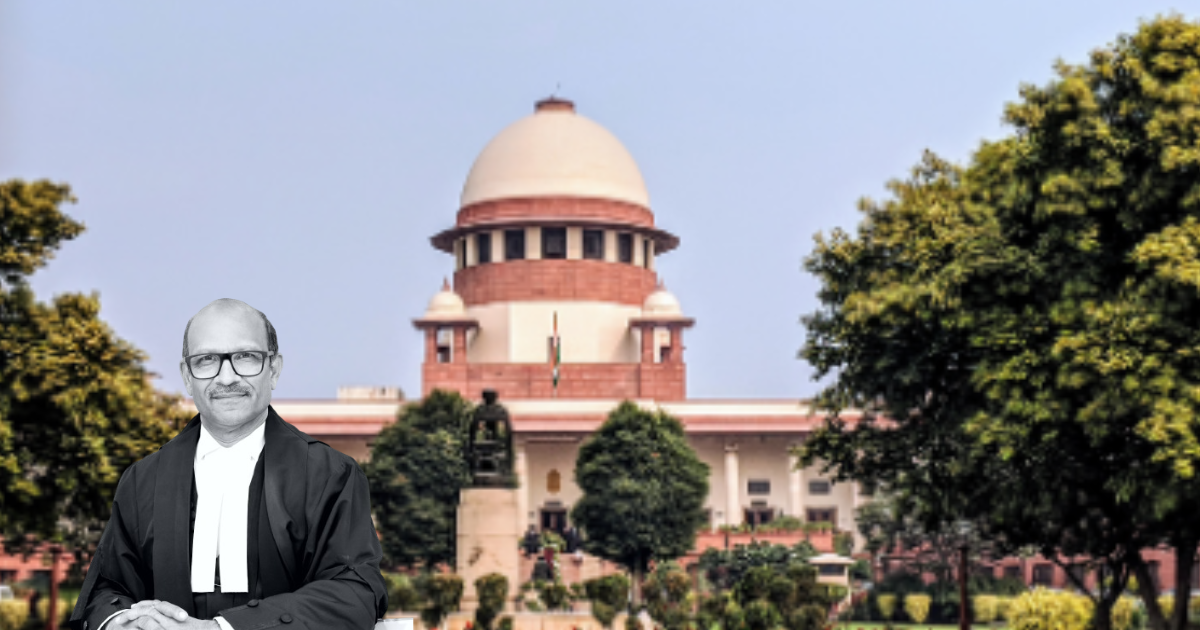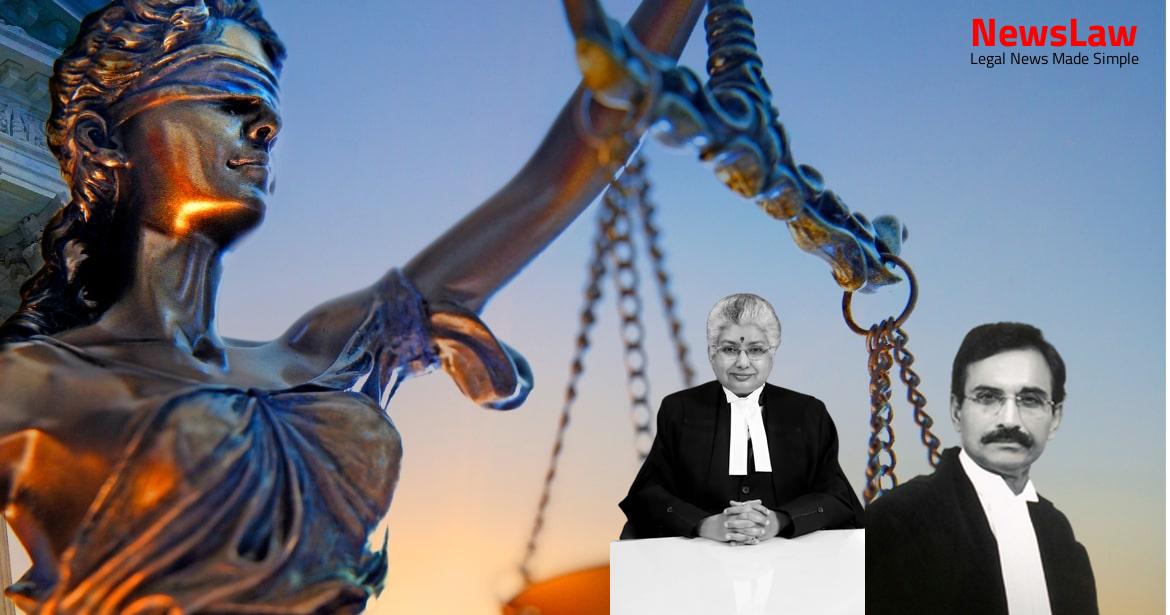This is a petition under Section 11(6) of the Arbitration and Conciliation Act, 1996, (for short, ‘ the Act 1996 ’), filed at the instance of a company based in Switzerland and engaged in the business of manufacturing of arms etc., praying for appointment of an arbitrator for the adjudication of disputes and claims arising out of the Contract No 78953/SMG/GS/WE-
4(GS-IV) dated 27.03.2012 executed with the respondent Government of India in its Ministry of Defence. The respondent vide its letter dated 24.02.2016, informed the Petitioner that the subject instructions for WBG encashment had been issued after due scrutiny and analysis of the case put up by the Petitioner vide letter dated 24.10.2014 and such encashment was with approval of the competent authority at Ministry of Defence. The respondent was also accorded sanction by the President of India to deduct Euro 197,230.35 towards the recovery of applicable LDs from the Petitioner in accordance with the terms of the Contract vide letter dated 11.08.2016. Nonetheless, the petitioner vide letter dated 04.09.2019, requested the respondent to review and discuss the wrongful imposition of LDS and give a fair chance to the petitioner to present its case. 09.2017:
It is pertinent to state that between 16.02.2016 and 22.09.2017, the parties were constantly engaged in “bilateral discussion” as specifically mandated by Article 21 of the Contract in order to resolve their disputes regarding the wrongful deduction of Liquidated damages and encashment of the BG. 02.2022: Petitioner vide email dated 03.02.2022 requested the Respondent to expedite the proceedings and further suggested to propose the name of the Arbitrator who could be appointed for the adjudication of the disputes under the contract. 02.2022: The Respondent vide its response dated 18.02.2022 to the arbitration notice of the Petitioner, did not raise any objection to the invocation of the arbitration proceedings however suggested that the Respondent shall not opt for a Sole Arbitrator and is in favour of appointing a three member arbitral tribunal. Any dispute, disagreement of question arising out of or relating to this Contract or relating to construction or performance (except as to any matter the decision or determination whereof is provided for by these conditions), which cannot be settled amicably, shall within sixty (60) days or such longer period as may be mutually agreed upon, from the date on which either party informs the other in writing by a notice that such dispute, disagreement or question exists, will be referred to the Arbitration Tribunal consisting of three arbitrators. The Arbitration Proceedings shall be conducted in India under the Indian Arbitration and Conciliation Act, 1996 and the award of such Arbitration Tribunal shall be enforceable in Indian Courts only. In the event of one of the parties failing to nominate its arbitrator within 60 days as above or if any of the parties does not nominate another arbitrator within 60 days of the place of arbitrator failing vacant, then the other party shall be entitled after due notice of at least 30 days to request the 8 President of International Chamber of Commerce, Paris to nominate another arbitrator as above.
According to the learned counsel, the aforestated is one of the distinguishing features of the Contract in question as in defence procurement contracts, it would be in the interest of the parties to resolve the disputes if any by way of ‘bilateral discussions’ rather than by initiating arbitration proceedings. According to the learned counsel, the ratio of the decision of this Court in the case of Geo Miller (supra) squarely applies to the facts of the present case. The learned counsel further pointed that the respondent by its own letter dated 18.02.2022, did not object to the invocation of the arbitration, however, it only objected to the appointment of a sole arbitrator. In such circumstances referred to above, the learned counsel prayed that the petition filed under Section 11(6) of the Act 1996 for constituting an Arbitral Tribunal being within the period of limitation, the same may be allowed and Arbitral Tribunal be constituted.
However, the notice for invoking of arbitration in accordance with Article 21 of the Contract was issued only on 08.11.2021, i.e., after a period of more than five years and much beyond the limitation period of three years. Nataraj, the learned ASG prayed that the claim of the petitioner being ex facie time barred, the present petition under Section 11(6) of the Act 1996 may not be entertained and the same may be rejected. Section 11 of the Act 1996 provides for appointment of arbitrators. Section 43 of the Act 1996 provides that the Limitation Act, 1963 would apply to arbitrations as it applies to the proceedings in Court. In the said case, it was contended on behalf of the appellant therein that Section 43 of the Act 1996 makes the provisions of the Act 1963 applicable only to arbitrations and not to any proceedings relating to arbitration in a Court. Section 43 of the AC Act, apart from making the provisions of the Limitation Act, 1963 applicable to arbitrations, reiterates that the Limitation Act applies to proceedings in court.
A plain reading of the aforesaid Article would indicate that the period of limitation in cases covered by Article 137 is three years and the said period would begin to run when the right to apply accrues. Delhi Development Authority reported in AIR 1988 SC 1887, it has been held that the existence of a dispute is essential for the appointment of an Arbitrator under Section 8 or a reference under Section 20 of the Arbitration Act, 1940 (for short, ‘the Act 1940’) and that a dispute can arise only when a claim is asserted by one party and denied by the other on whatever grounds. With respect to the period of time, in the light of the facts of that particular case as to when did the dispute actually 16 arises, despite the fact that the contract work in question was completed in the year 1980, the Court observed that even though it was true that on completion of the contract work right to get payment would normally arise, but where the final bill had not been prepared and when the assertion of the claim was made much after the completion of the work and there was non-payment, the cause of action arose from the date when the assertion was made. 20, it is necessary that there should be an arbitration agreement and secondly, difference must arise to which this agreement applied. It is also true that a party cannot postpone the accrual of cause of action by writing reminders or sending reminders but where the bill had not been finally prepared, the claim made by a claimant is the accrual of the cause of action.
Secondly, a dispute arises when there is a claim on one side and its denial/repudiation by the other and thirdly, a person cannot postpone the accrual of cause of action by repeatedly writing letters or sending reminders. One is whether the claim made in the arbitration is barred by limitation 18 under the relevant provisions of the Limitation Act and secondly, whether the claim made for application under Section 20 is barred. The second is a matter which the arbitrator would decide unless, however, if on admitted facts a claim is found at the time of making an order under Section 20 of the Arbitration Act, to be barred by limitation. With reference to the limitation aspect the Court found that the assertion of claim and denial of the same was a necessary ingredient and then went on to say that it would be wrong to mix up the two aspects, namely, whether there was any valid claim for reference under Section 20 of the Act 1940 and whether the claim to be adjudicated by the Arbitrator was barred by lapse of time.
Also Read: https://newslaw.in/?p=548
The appellant is obviously confusing the limitation for a petition under Section 8(2) of the Arbitration Act, 1940 with the limitation for the claim itself. Section 37(3) of the Act provides that for the purpose of the Limitation Act, an arbitration is deemed to have been commenced when one party to the arbitration agreement serves on the other party thereto, a notice requiring the appointment of an arbitrator. and Another, reported in (2005) 8 SCC 618, this Court held that dragging a party to an arbitration when there existed no arbitrable dispute, can certainly affect the right of that party, and, even on monetary terms, impose on him a serious liability for meeting the expenses of the arbitration. The issues (first category) which the Chief Justice/his designate will have to decide are: (a) Whether the party making the application has approached the appropriate High Court. (b) Whether there is an arbitration agreement and whether the party who has applied under Section 11 of the Act, is a party to such an agreement.
The Court upon careful consideration of such history must find out what was the “breaking point” at which any reasonable party would have abandoned efforts at arriving at a settlement and contemplated referral of the dispute for arbitration. Moreover, in a commercial dispute, while mere failure to pay may not give rise to a cause of action, once the applicant has asserted their claim and the respondent fails to respond to such claim, such failure will be treated as a denial of the applicant’s claim giving rise to a dispute, and therefore the cause of action for reference to arbitration. The aforesaid observations make it very clear that what is important for the Court is to find out what was the “ Breaking P oint” at which any reasonable party would have abandoned efforts at arriving at a settlement and contemplated referral of the dispute for arbitration.
Hence the maximum period during which this Court could have allowed the appellant’s application for appointment of an arbitrator is 3 years from the date on which cause of action arose i.e. 99.70 crore towards the liquidated damages and other levies. The appellant filed a review petition before the High Court against the order dated 13.10.2020 which was dismissed by the Court vide their order dated 14.01.2021.
The appellant submitted the following before this Court- •
The cause of action for invoking arbitration arose on 04.08.2014 when the claim made by the respondent was rejected by making deductions from the final bill. The respondent submitted the following- • The amendment to Section 11 by the Arbitration and Conciliation (Amendment) Act, 2015 provides for a limited scope of enquiry at the pre- reference stage which is restricted only to the ‘existence; of an arbitration agreement under Section 11(6A). Since there is no provision in the Act 1996 specifying the period of limitation for filing an application under Section 11, one would have to take recourse to the Act 1963, as per Section 43 of the Act 1996 which provides that the Limitation Act shall apply to arbitrators, as it applies to proceedings in Court.
The respondent filed an application under Section 11 before the High Court on 24.07.2020, i.e., within the period of three years of rejection of the request for appointment of arbitrator. There is not even an averment either in the notice of arbitration, or the petition filed under Section 11, or before this Court, of any intervening facts which may have occurred, which would extend the period of limitation falling within Sections 5 to 20 of the Limitation Act. Gujarat Urja Vikas Nigam Ltd., (2020) 5 SCC 185] or mere settlement discussions, where a final bill is rejected by making deductions or otherwise. There must be a clear notice invoking arbitration setting out the “particular dispute” [ Section 21 of the Arbitration and Conciliation Act, 1996.] (including claims/amounts) which must be received by the other party within a period of 3 years from the rejection of a final bill, failing which, the time bar would prevail.
This Court, therefore, considered it necessary for the Parliament to effect an amendment to Section 11 of the Act 1996, prescribing a specific period of limitation within which a party may move the court for making an application for appointment of arbitrators under Section 11 of the Act. This demand was reiterated by a letter dated 13-1-2007, which letter itself informed the appellant that appointment of an arbitrator would have to be made within 30 days. This being the case, the High Court was clearly in error in stating that since the applications under Section 11 of 30 the Arbitration Act were filed on 6-11-2013, they were within the limitation period of three years starting from 10-11-2020. As an exception to the rule, and rarely as a demurrer, the referral court may reject claims which are manifestly and ex-facie non-arbitrable [Vidya Drolia supra note 7, para 154.4.]. Referral courts must not undertake a full review of the contested facts; they must only be confined to a primary first review [Vidya Drolia supra note 7, para 134.] and let facts speak for themselves.
On the other hand, even if there is the slightest doubt, the rule is to refer the dispute to arbitration [Vidya Drolia supra note 7, para 154.4.]. Therefore, this Court or a High Court, as the case may be, while exercising jurisdiction under Section 11(6) of the Act, is not expected to act mechanically merely to deliver a purported dispute raised by an applicant at the doors of the chosen arbitrator [DLF Home Developers Limited v. If the parties have agreed that they would first endeavour to resolve the disputes amicably in a particular manner, it is necessary for them to first exhaust that procedure before exercising any right to refer the disputes to arbitration. Thus, the right to apply can be said to have accrued “only on the date of the last correspondence between the parties and the period of limitation commences from the date of the last communication between the parties.” The learned counsel appearing for the petitioner also placed reliance on a decision rendered by the Calcutta High Court in Zillon Infraprojects Pvt. Therefore, the limitation period will not be operative against the petitioner from February 05, 2019 onwards, and hence, the present petition is well within time and not barred by limitation. …
Also Read: https://newslaw.in/?p=554
The substance of the matter is that time runs when the cause of action accrues and a cause of action accrues when there is in existence a person who can sue and another who can be sued, and when all the facts have happened which are material to be proved to entitle the plaintiff to succeed ; Coburn v. If a party simply delays sending a notice seeking reference under the Act 1996 because they are unclear of when the cause of action arose, the claim can become time-barred even before the party realises the same. The period of limitation for the commencement of an arbitration runs from the date on which, had there been no arbitration clause, the cause of action would have accrued: “Just as in the case of actions the claim is not to be brought after the expiration of a specified number of years from the date on which the cause of action accrued, so in the case of arbitrations the claim is not to be put forward after the expiration of the specified number of years from the date when the claim accrued.” Even if the arbitration clause contains a provision that no cause of action shall accrue in respect of any matter agreed to be referred to until an award is made, time still runs from the normal date when the cause of action would have accrued if there had been no arbitration clause.
An application under Section 11 of the Act 1996 is governed by Article 137 of the Schedule to the Act 1963 and must be made within 3 years from the date when the 36 right to apply first accrues. In such a case, it is not open to a party to sit tight and not to file an application for settlement of dispute of his right, which had been infringed, within the time provided by the Limitation Act, and, allow his right to be extinguished by lapse of time, and thereafter, to wait for another cause of action and then file an application under Section 11 of the Act 1996 for establishment of his right which was not then alive, and, which had been long extinguished because, in such a case, such an application would mean an application for revival of a right, which had long been extinguished under the Act 1963 and is, therefore, dead for all purposes. What is more important is the fact 37 that the respondent on 26.09.2016, deducted the amount towards recovery of the liquidated damages. To say that even thereafter, the petitioner kept negotiating with the respondent in anticipation of some amicable settlement would not save the period of limitation.
Case Title: M/S B AND T AG Vs. MINISTRY OF DEFENCE (2023 INSC 549)
Case Number: ARBIT.CASE(C) No.-000013 / 2023



